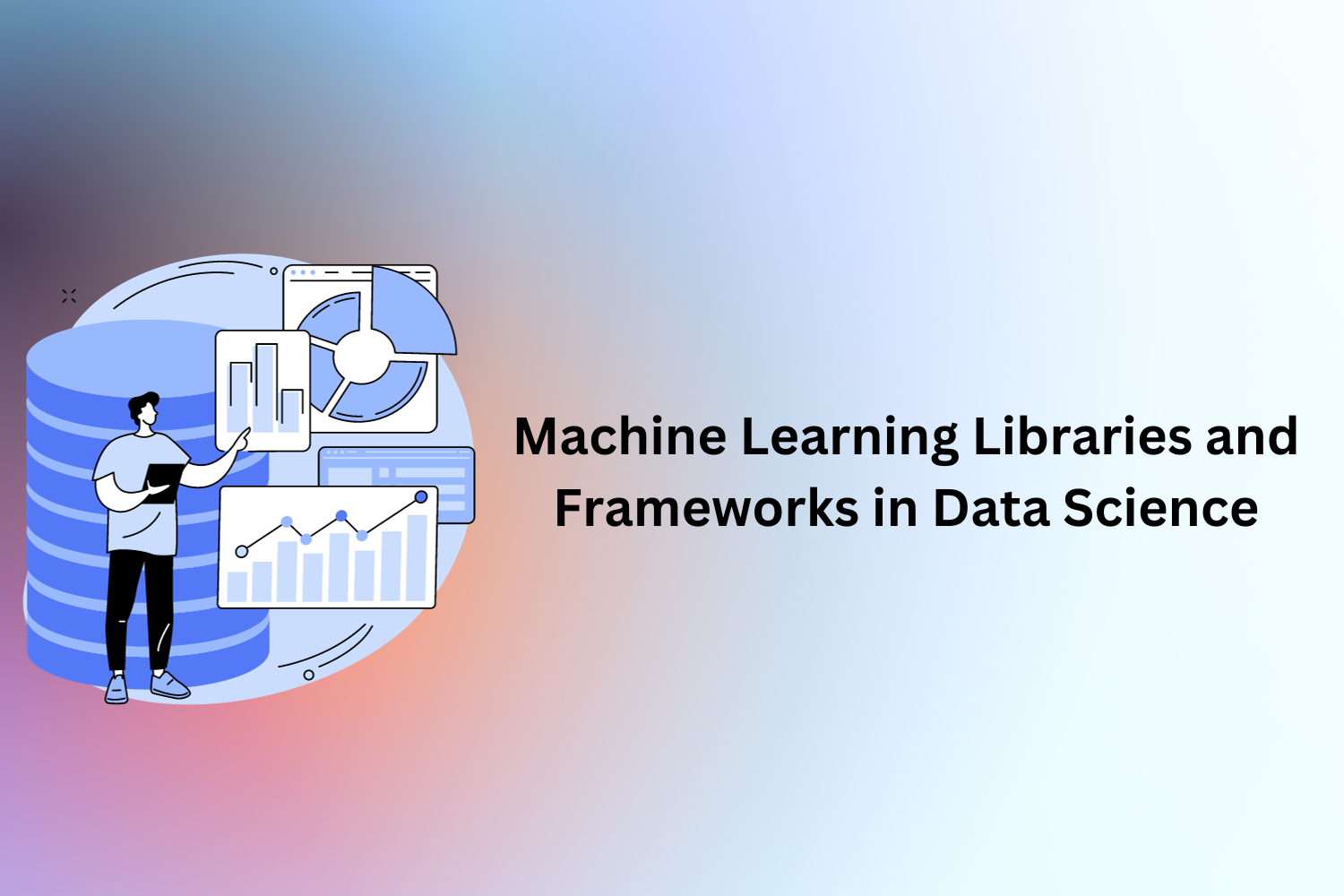The data science field is constantly changing, and a wide range of tools and technologies are available to help extract useful insights from data. Machine learning libraries and frameworks, essential elements that enable data scientists to realise the full potential of data, are at the centre of this revolution. The role, adaptability, and significance of Data Science Tools within the data science ecosystem will be discussed in this blog, along with the value of including them in a thorough Data Science Training Courses.
Table Of Contents
- Data Science Tools and Their Evolution
- Enter Machine Learning Libraries and Frameworks
- Significance of Machine Learning Libraries and Frameworks in Data Science
- The Intersection of Data Science Training and Machine Learning Tools
- Key Considerations in Choosing Machine Learning Tools for Training
- Conclusion
Data Science Tools and Their Evolution
The way that businesses use data to inform decisions has completely changed with the introduction of advanced data science technologies. Data scientists may navigate through enormous datasets and identify significant patterns with the help of these tools, which vary from basic statistical programmes to sophisticated machine learning frameworks. The requirement for tools that can effectively handle and process this data has increased along with its amount and complexity.
Enter Machine Learning Libraries and Frameworks
Machine Learning Libraries
Pre-built modules or function sets that make it easier to construct machine learning algorithms are known as machine learning libraries. For data scientists, these libraries offer a foundation that frees them up to concentrate on algorithmic development and analysis instead of writing code from scratch. Several well-known machine learning libraries are TensorFlow, PyTorch, and scikit-learn.
Machine Learning Frameworks
As an alternative, these frameworks provide a more thorough and adaptable method. They give machine learning models a framework for creation, training, and application. Frameworks come with many tools and utilities and provide a higher level of abstraction. Two well-known machine learning frameworks that are frequently utilised in the data science field are TensorFlow and PyTorch.
Significance of Machine Learning Libraries and Frameworks in Data Science
Efficiency and Productivity
Machine learning libraries and frameworks significantly enhance the efficiency and productivity of data scientists. Professionals can speed up the development process and concentrate on the strategic elements of their projects by utilising pre-built functions and algorithms. This efficiency is crucial in meeting tight deadlines and delivering impactful results.
Access to State-of-the-Art Algorithms
It can be challenging to stay up to date with the newest algorithms in the huge field of machine learning. This problem is made easier by machine learning frameworks and libraries, which give users access to a database of cutting-edge algorithms. Because of this accessibility, data scientists can use state-of-the-art methods without having to possess an in-depth understanding of algorithms.
Scalability and Performance
Scalability becomes increasingly important as datasets get bigger and more complex. The optimal performance of machine learning frameworks is ensured by their ability to handle enormous volumes of data efficiently. In sectors where large databases are typical, like finance, healthcare, and e-commerce, scalability is especially important.
Community Support and Documentation
Widespread community support is advantageous for well-known machine learning libraries and frameworks. Users can ask questions and share insights in a plethora of forums, tutorials, and documentation thanks to this collaborative environment. For data scientists, especially those who are just starting out in the field, community support is important.
The Intersection of Data Science Training and Machine Learning Tools
Machine learning frameworks and libraries should be applied practically in a thorough data science training course. By incorporating these technologies into training programmes, aspirant data scientists are certain to acquire the abilities needed to handle the challenges presented by real-world initiatives. A job in data science requires an understanding of the nuances of widely used libraries like scikit-learn for classical machine learning and TensorFlow and PyTorch for deep learning.
Key Considerations in Choosing Machine Learning Tools for Training
Industry Relevance
Training course machine learning tool selection should consider industry trends and requirements. Professionals ought to possess knowledge and abilities that are directly relevant to the kinds of projects that are common in the sectors they are targeting.
Versatility
To guarantee versatility, the best data science training programme should include instruction on a variety of machine learning techniques. Data scientists may select the best tool for a given task based on project complexity, dataset size, and performance needs by being exposed to both libraries and frameworks.
Practical Application
In the ever-evolving field of data science, theoretical understanding is not enough on its own. Practical, hands-on implementation of machine learning techniques should be emphasised in training programmes. Case studies and projects from the real world give students the experience they need to overcome obstacles in their future positions.
Conclusion
To sum up, machine learning frameworks and libraries are essential to the accomplishment of data science initiatives. Their effectiveness, expandability, and availability of cutting-edge algorithms render them essential instruments for data scientists managing the intricacies of the domain. These resources should be included in an extensive data science training programme to guarantee that professionals are prepared to use machine learning effectively and make a significant contribution to the data-driven revolution. The future of data scientists will continue to be shaped by the combination of state-of-the-art tools and training in data science, as the discipline develops.






